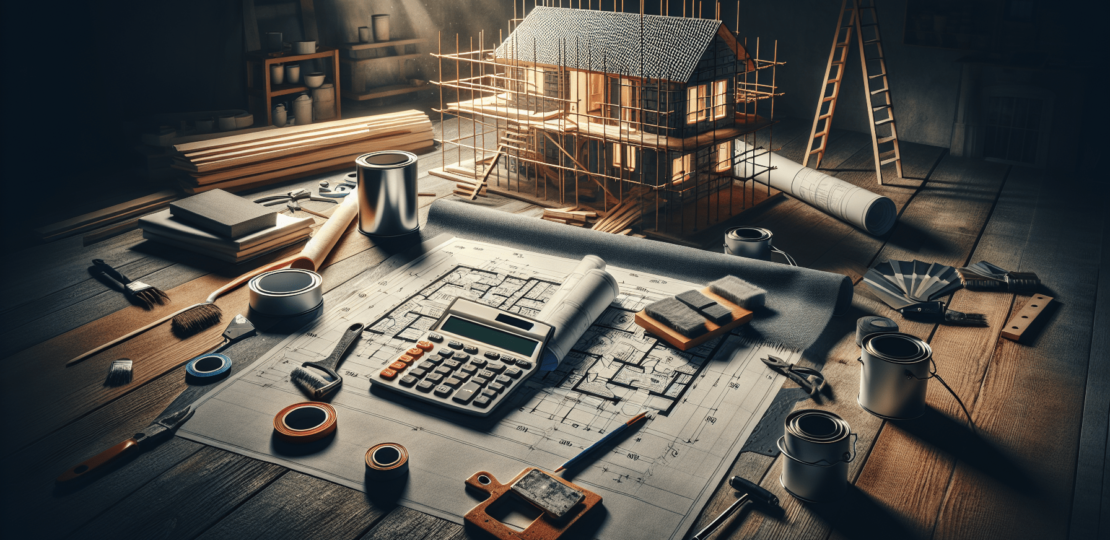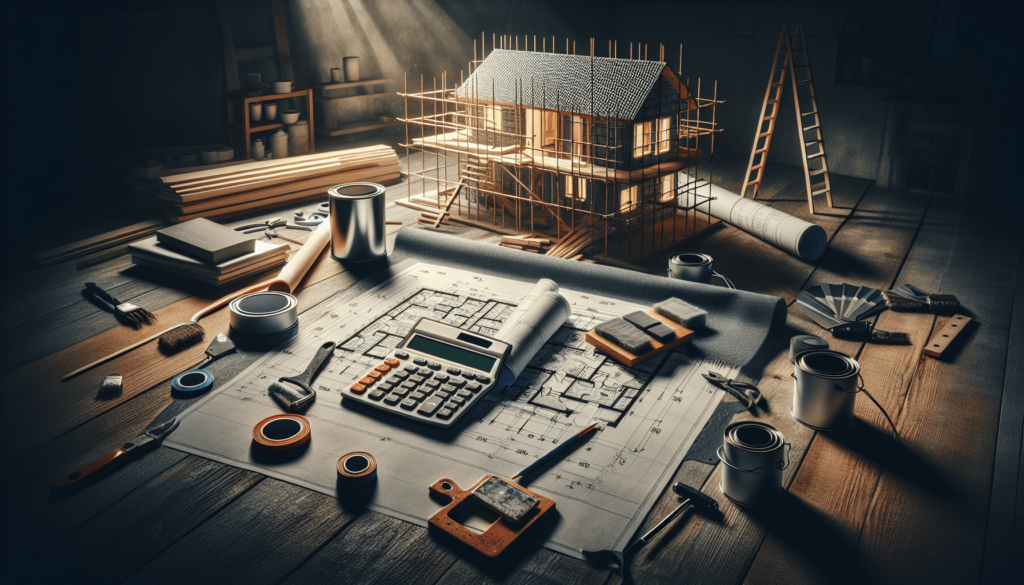What Happens If You Go Over Budget When Building A House?
October 17, 2024 | by neoguruman@gmail.com

Have you ever considered what might happen if your dream home turns into a financial challenge? Building a house is exciting, but it also comes with potential pitfalls, especially when it comes to budgeting. Let’s navigate the implications of going over budget during your construction journey.

Understanding Your Budget
Before we get into what happens when you exceed your budget, it’s essential to grasp the initial elements of your budget. Your budget is not just a number; it’s a comprehensive plan that accounts for various costs associated with construction.
Components of a Construction Budget
When developing a budget for your home, consider the following elements:
-
Land Costs: This includes the purchase price of the plot where your home will sit.
-
Construction Costs: Costs related to labor, materials, and permits are all encompassed here.
-
Design Fees: If you hire architects or interior designers, factor these costs into your budget.
-
Utilities: The cost of connecting electricity, water, and sewage must be considered.
-
Landscaping: Don’t forget about bringing your yard to life; landscaping can add significant expense.
Even the most meticulous planners can run into surprises, prompting questions on what happens when you overspend.
What Happens When You Go Over Budget?
If you find yourself over budget during construction, the repercussions can impact various aspects of your project. Understanding these consequences can help you make informed decisions moving forward.
Immediate Financial Strain
When construction costs exceed your budget, you may face immediate financial strain. This could manifest in several ways:
-
Increased Debt: If you are reliant upon loans to finance your build, you may need to borrow more than initially planned.
-
Reduced Buffer: An over-expended budget may leave little to no room for unexpected costs, creating a domino effect in your financial planning.
-
Cash Flow Issues: With unexpected increases in costs, maintaining a steady cash flow can become challenging. You may find it difficult to pay for ongoing expenses related to the build.
Impact on Loan Types
Depending on the type of financing you secured, going over budget can lead to different outcomes:
Construction Loans
-
Cost Overruns: If you initially applied for a construction loan, exceeding your budget could necessitate additional borrowing. Lenders may have limitations that impact how much you can borrow additionally.
-
Interest Rates: If your financial situation changes and you have to apply for more funds while construction is in progress, the interest rates may also change, making your overall loan more expensive.
Fixed-Rate Mortgages
- Reassessing Terms: If you go over budget significantly and have to transition to a mortgage, lenders may require you to reassess your terms, possibly increasing your monthly payments.
Constraints on Future Choices
An over budget situation might limit your opportunities for future decisions. This could include:
Design Constraints
- Compromised Aesthetics: You may have to reduce the architectural integrity or design elements of your home. What once seemed attainable could fall by the wayside due to budget constraints.
Delayed Timelines
- Schedule Issues: An over-budget project can delay the completion of your home. With funds tied up, you might have to push back timelines, causing frustration.
Emotional Stress
Building a house can be an emotional rollercoaster, and going over budget can heighten those feelings. Here are a few emotional impacts you might experience:
-
Stress from Financial Pressure: The anxiety of increased debt can be overwhelming and affect your overall mental health.
-
Frustration with Delays: If financial strains lead to project delays, this might culminate in feelings of exasperation and disillusionment.
Managing Your Budget During Construction
If you find yourself approaching or exceeding your budget during construction, there are some strategies you can implement to regain control.
Calculate a Contingency Fund
One practical approach is to set aside a contingency fund, typically around 10% to 20% of your total budget. This fund can be utilized to cover unexpected costs that may arise throughout the construction process.
Prioritize Spending
Evaluate what elements of your home are most essential to you:
-
Must-Haves: Identify critical features that absolutely can’t be sacrificed.
-
Nice-to-Haves: Consider which features you can forgo without compromising your overall vision.
Keep Open Communication
Maintain ongoing communication with contractors and suppliers. Frequent check-ins help ensure everyone remains on the same page. Discuss concerns about budget and costs; this exchange can provide insights into potential savings or adjustments.
Document Everything
Keep detailed records of all expenses, changes, and plans. This structured approach can clarify where funds have been allocated and where future costs may arise, helping to better manage your finances.
Regularly Review Your Budget
Check in on your budget periodically throughout the construction process. Regularly reviewing your budget allows you to make timely adjustments to avoid further surprises.
Pros and Cons of Going Over Budget
Understanding the good and the bad of going over budget can provide clarity as you navigate this complex situation.
Pros
-
Improved Quality: In some cases, overspending can lead to enhanced quality in materials or finishes. Prioritizing durability can save money in the long run.
-
Customized Features: You might end up with features that better fit your personal style or accommodate your lifestyle needs.
Cons
-
Financial Burden: The most evident con is the financial strain that comes with overspending. This scenario can lead to a prolonged financial burden.
-
Potential for Compromise: The need to cut corners may arise if you exceed your budget, leading to compromises in quality or function.
Alternative Solutions if You Go Over Budget
If you’ve already exceeded your budget, consider these alternative solutions to manage the situation.
Restructure Your Loan
Sometimes lenders can offer options like adjusting your loan terms or refinancing existing loans to spread out costs more effectively.
Wait it Out
If the home is not yet complete, consider putting a pause on further spending until you assess your finances. This could involve taking the time necessary to save up additional funds without accruing more debt.
Downsize Your Plans
If you face insurmountable issues with budgeting, consider downsizing specific elements of your home rather than abandoning the project altogether. Reducing square footage or negotiating for less expensive materials could help cover costs.
The Importance of Future Planning
Regardless of your spending, it’s beneficial to keep future planning at the forefront of your mind.
Financial Literacy
Strengthening your financial literacy will help you manage your future construction better. Take the time to learn about budgeting and financing options.
Research
Stay informed about market trends in construction, materials, and labor. Keeping abreast of industry changes can empower you to make more strategic decisions regarding your budget.
Consult Professionals
Don’t hesitate to seek advice from financial planners or construction experts. Their insights may uncover strategies that could better align your budget with your construction objectives.
Recap: Making Informed Choices
Navigating the complexities of building a home without exceeding your budget is a significant challenge. Understanding the potential consequences of going over budget, from increased financial strain to affecting future choices, can guide you in making informed decisions.
When you embark on this journey, remember that it’s okay to reassess your plans, prioritize essential features, and maintain open lines of communication. Constructing your dream home should be a fulfilling experience, not a source of stress.
Every decision you make, from creating a realistic budget to consulting with experts, contributes to your overall happiness in your new space. Ensure that you approach each step of the process with confidence, knowing that you have the tools and strategies to handle any situation that may arise.
In the end, it’s all about creating a space that gives you joy and comfort while being financially sound. Happy building!
RELATED POSTS
View all
